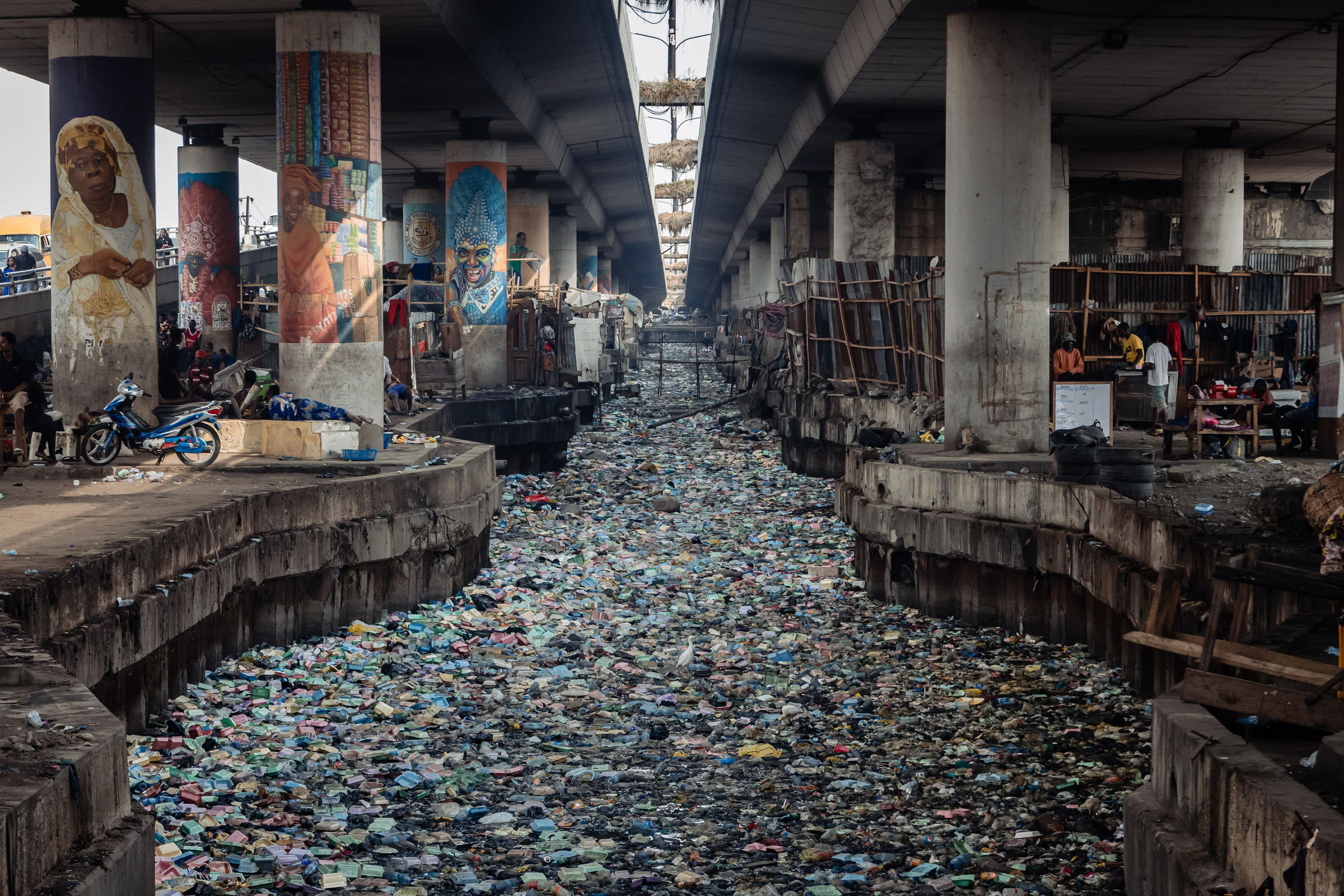In the early 2020s, Lagos, Nigeria, was drowning in plastic waste. Plastic bags, styrofoam containers, and water bottles clogged waterways, littered streets, and overflowed landfills. Officials in the city of 22 million faced a dilemma.
They needed a policy to control the situation, but lacked precise data on the extent of local plastic waste generation. This data gap was their first challenge, but not a unique one.
Sinikinesh Jimma, Head of the Freshwater and Marine Branch at the United Nations Environment Programme (UNEP), said the lack of reliable statistics on plastic waste and pollution is a common problem. "Filling these data gaps is crucial to developing evidence-based policies and responding to this escalating crisis," she said.
To address this, Lagos partnered with UNEP and the United Nations Human Settlements Programme (UN-Habitat) to conduct its first waste audit. The results were startling: approximately 34 kg of plastic waste per person leaked into Lagos' water systems annually. This is equivalent to each resident discarding 10 plastic bottles daily.
 |
A canal clogged with plastic waste in Obalende, Lagos on 23/1/2024. Photo: AFP |
A canal clogged with plastic waste in Obalende, Lagos on 23/1/2024. Photo: AFP
By 2024, Lagos contributed 870,000 tons to the global total of 57 million tons of plastic waste, ranking it among the world's most polluted cities, according to the Associated Press (AP). This statistic and unwanted distinction spurred the city government to act. They banned single-use plastics, from cutlery and straws to styrofoam containers. Other plastics, representing a smaller percentage of the city's waste, remain permitted.
The ban took effect on 1/7, and businesses violating it risk closure. However, the AP reports that the ban is far from fully implemented. Olarewanju Ogunbona, a food stall manager in Lagos, said she still uses styrofoam containers and plastic bags at least 5 times a day to package takeaway food for customers. "Vendors still use them a lot," she said.
Despite the government promoting the ban as a major step forward, environmental groups share the skepticism of business owners. "Its effectiveness is limited without strict enforcement, affordable alternatives for low-income vendors, and significant improvements to the city's overwhelmed waste management system," said Olumide Idowu, an environmental activist in Lagos.
Lagos generates at least 13,000 tons of waste daily, nearly 20% of which is plastic, according to officials. Due to inadequate waste management, much of it ends up in rivers and lagoons, clogging waterways, polluting beaches, and contributing to devastating floods.
A positive development in recent years has been the emergence of private waste management companies and sustainable development groups, helping to address the plastic crisis. Their presence has boosted the informal waste picking trade.
At a waste sorting site in the Obalende commercial district, two women use razor blades to scrape labels off soft drink bottles. They remove caps and toss them into separate mesh bags for sorting, to be recycled by private waste management companies. Selling sorted plastic to these companies earns them about 5,000 naira (3.26 USD) per day.
But the growth of informal waste picking and private recycling businesses is not enough. Manufacturers must also take greater responsibility for addressing plastic waste, according to Omoh Alokwe, Co-founder of Street Waste, which operates in Obalende. "They need to ensure that the plastic they produce is collected and recycled," she said.
Experts also call for behavioral changes to make the single-use plastic ban effective. According to shop owner Olarewanju Ogunbona, Lagos residents need viable alternatives to single-use plastics. "Otherwise, we will continue using them," she said.
According to the Organisation for Economic Co-operation and Development (OECD), the world generated approximately 400 million tons of plastic waste in 2024. This figure is projected to nearly triple in the next 25 years, with the sharpest increases occurring in developing countries, particularly in Africa and the Asia-Pacific region. If current trends continue, much of this plastic waste will end up in rivers, lakes, and oceans.
This week, in Geneva, Switzerland, nations are negotiating a treaty to end plastic pollution. Similar talks collapsed last year when oil-producing countries opposed any restrictions on plastic production, as most plastic is made from fossil fuels like oil and gas. Nigeria is among the countries participating in these discussions.
Phien An (according to AP, UNEP)












